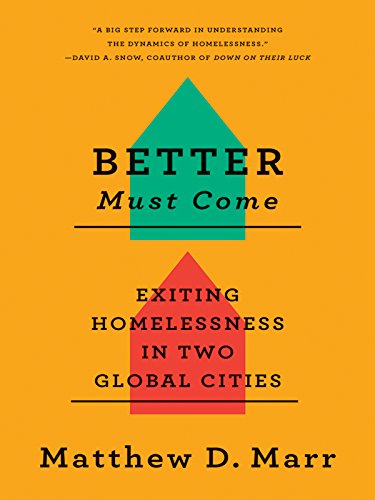

Most ebook files are in PDF format, so you can easily read them using various software such as Foxit Reader or directly on the Google Chrome browser.
Some ebook files are released by publishers in other formats such as .awz, .mobi, .epub, .fb2, etc. You may need to install specific software to read these formats on mobile/PC, such as Calibre.
Please read the tutorial at this link: https://ebookbell.com/faq
We offer FREE conversion to the popular formats you request; however, this may take some time. Therefore, right after payment, please email us, and we will try to provide the service as quickly as possible.
For some exceptional file formats or broken links (if any), please refrain from opening any disputes. Instead, email us first, and we will try to assist within a maximum of 6 hours.
EbookBell Team

4.3
18 reviewsInBetter Must Come, Matthew D. Marr reveals how social contexts at various levels combine and interact to shape the experiences of transitional housing program users in two of the most prosperous cities of the global economy, Los Angeles and Tokyo. Marr, who has conducted fieldwork in U.S. and Japanese cities for over two decades, followed the experiences of thirty-four people as they made use of transitional housing services and after they left such programs. This comparative ethnography is groundbreaking in two ways―it is the first book to directly focus on exits from homelessness in American or Japanese cities, and it is the first targeted comparison of homelessness in two global cities. Marr argues that homelessness should be understood primarily as a socially generated, traumatic, and stigmatizing predicament, rather than as a stable condition, identity, or culture. He pushes for movement away from the study of "homeless people" and "homeless culture" toward an understanding of homelessness as a condition that can be transcended at individual and societal levels.Better Must Comeprescribes policy changes to end homelessness that include expanding subsidized housing to persons without disabilities and experiencing homelessness chronically, as well as taking broader measures to address vulnerabilities produced by labor markets, housing markets, and the rapid deterioration of social safety nets that often results from neoliberal globalization.